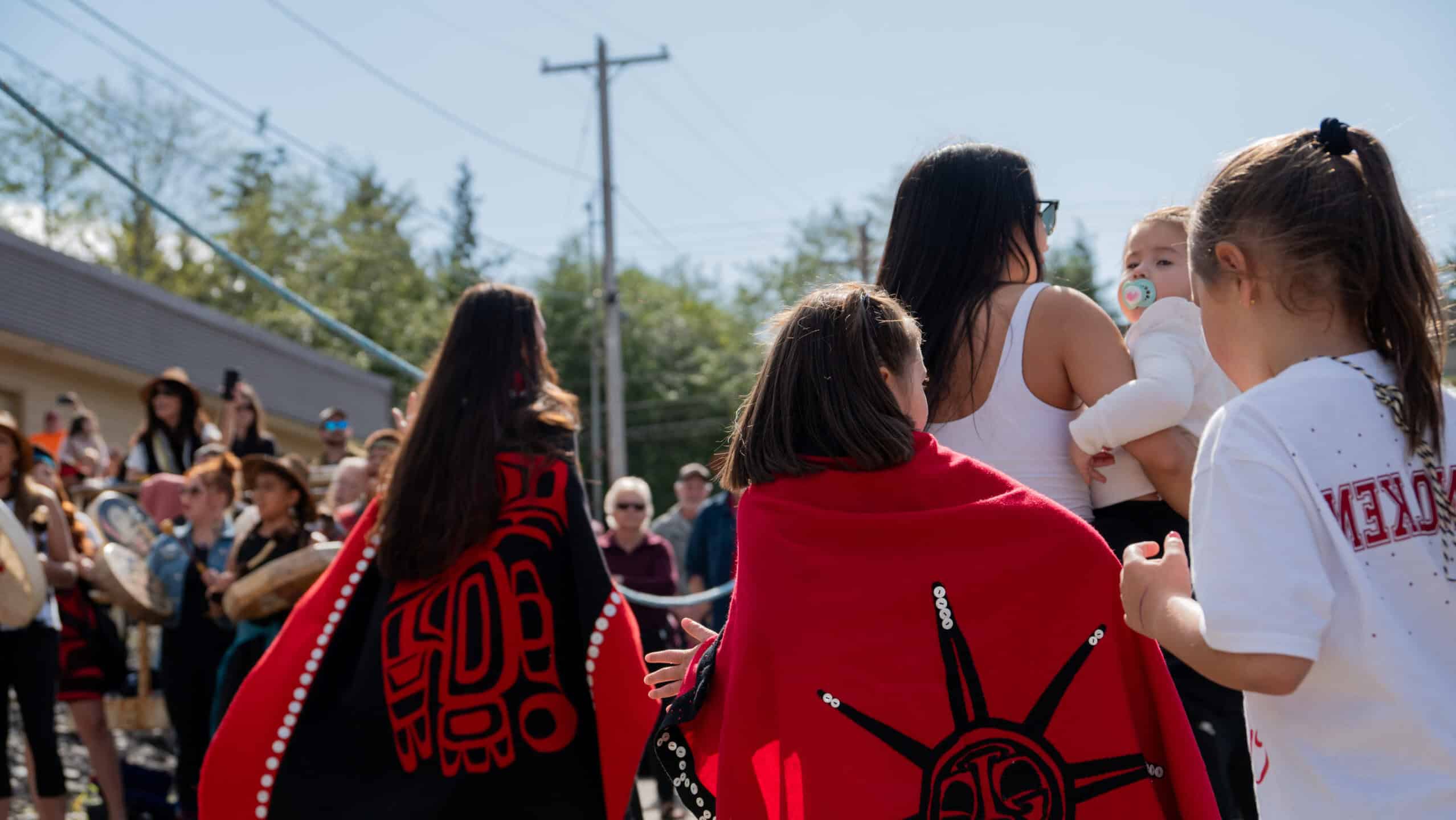The children leaned over the pit filled with fermented saak (hooligan), their eyes wide, taking in every sight, sound and scent.
“That smells yummy,” four-year-old Ukoonik remarked.
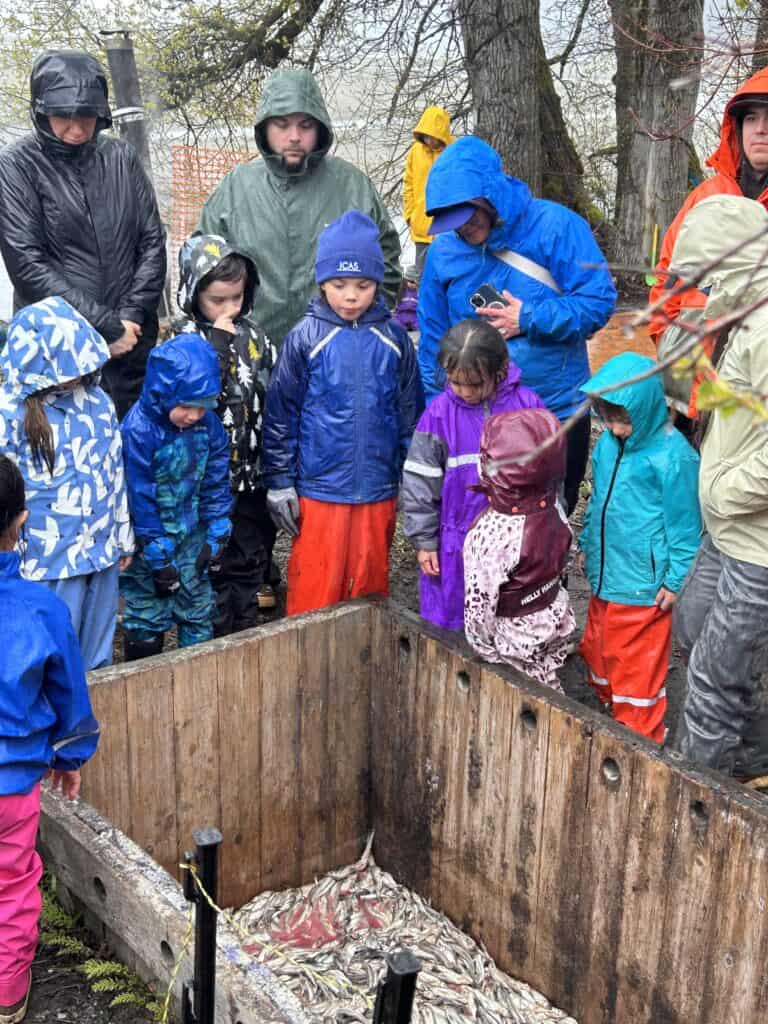
Ukoonik is one of the six preschoolers in Tlingit & Haida’s Haa Yoo X’atángi Kúdi Language Nest, a Lingít immersion program in Juneau, AK.
For the first time, the kids were able to get out of the classroom and embark on an extended field trip with their families and the preschool teachers to Haines to learn how to make saak eixí (hooligan grease).
“When I signed him up for preschool I just thought it would be just about the language but it’s so much more than that. We get to have a preschool trip and come out and be in the most beautiful place in the world,” said Ukoonik’s mom Allison Waid.
Tlingit Language Manager Daaljíni Cruise said this kind of experience is more than place-based education – it’s land-based.
“We are often stuck in a box in classroom learning in a Western education setting and I feel like our kids don’t get the opportunity to get out on the land as much as they should,” Daaljíni said. “This is where I thrive and where I see my son and daughters thrive in this kind of learning environment.”
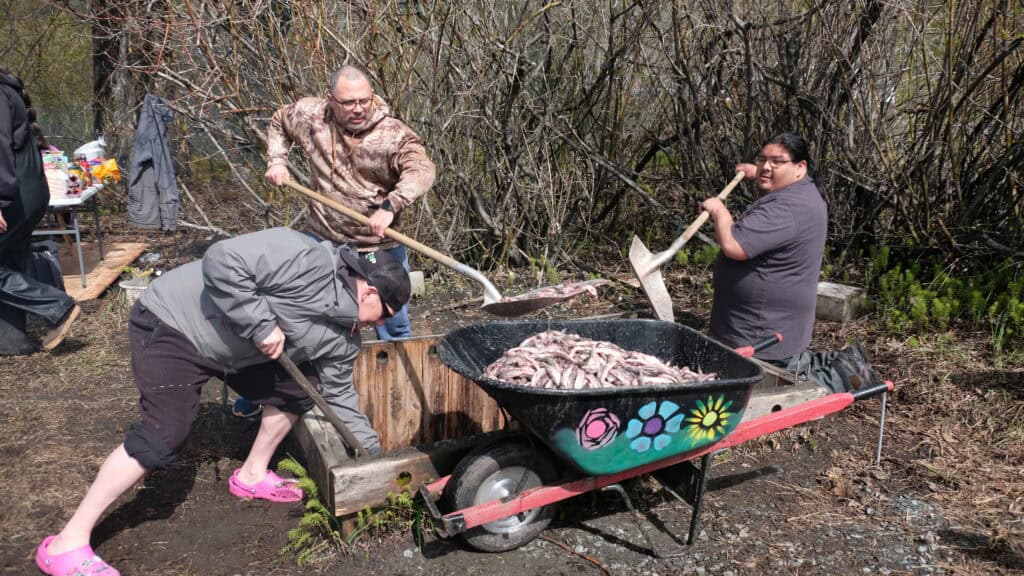
MAKING SAAK EIXÍ
Daaljíni’s family has been making saak eixí for about 20 years. She learned from the Wilson family in Haines, who learned from Austin Hammond.
Making the oil is a weeks-long process that begins with harvesting thousands of fish, then leaving them in a pit to ferment for 10-14 days.
When the fish are ready, Daaljíni and her family and the preschoolers’ parents shoveled the saak out of the pit, into a wheelbarrow, and hauled them down to a large vat of boiling water.
Two people stand on opposite sides of the cooking pot and methodically stir and chop the fish.
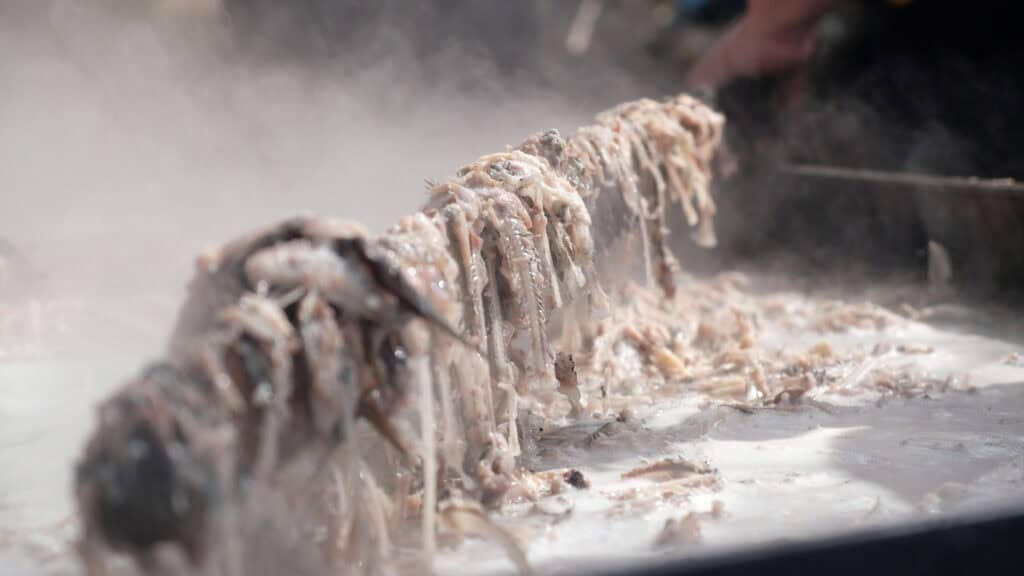
“Chopping means you’re getting it up on the stick and chopping until the meat falls off the bones,” Daaljíni explained.
The fire dies down and the oil rises to the top as it cools. Daaljíni and her wife Roz use a skimming board to corral the oil into one side of the pot. They use a large ladle to skim the oil off and filter it into five-gallon buckets.
“Hooligan oil is always my favorite. I love the springtime days and I love the taste of fresh saak eixí after you’re done with the cook and it’s cooling and you soak a cracker in it. Nothing compares, you can never recreate that taste,” Daaljíni said.
REVIVING LANGUAGE & TRADITIONS
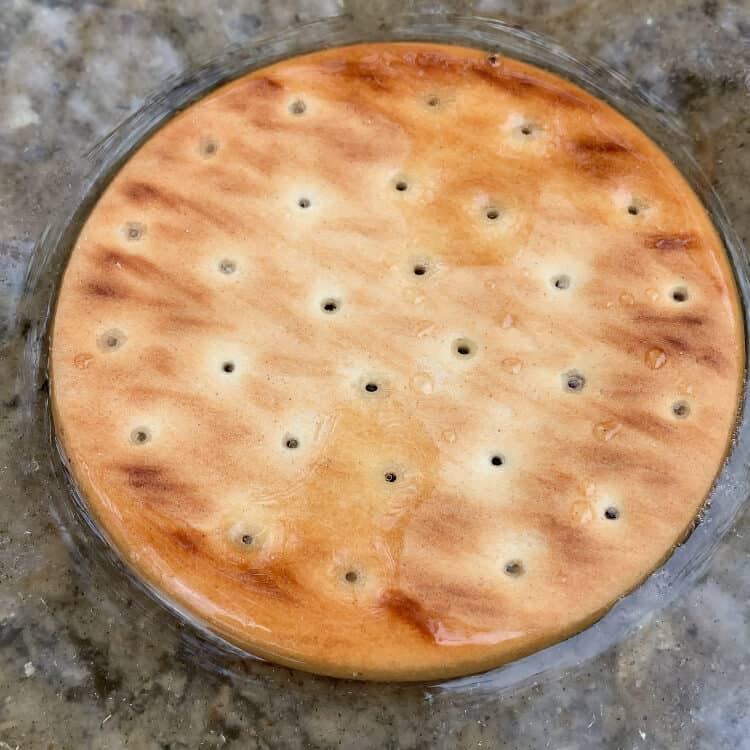
While teaching the Lingít language is the core of the program, Haa Yoo X’atángi Kúdi gives kids the chance to learn more about their culture, from preparing traditional foods to singing, drumming and dancing in the classroom.
“It gives them an experience to broaden their horizons but in a more special and connected way to our ancestors and to the way things used to be,” said Margaret Katzeek, whose daughter Ruth is the second of her children to go through the program.
For families who endured the generational trauma and language loss of residential boarding schools, the program offers healing as kids learn the words their ancestors were forbidden to speak.
“One of the most special moments I’ve had as a mom is watching Kiidk’yaas, my son, read books to my mother in the language. She didn’t have the opportunity to learn when she was growing up and now it’s intergenerational healing,” said Jodie Gatti. “I get emotional when I talk about it because it’s the most special thing I’ve ever witnessed.”
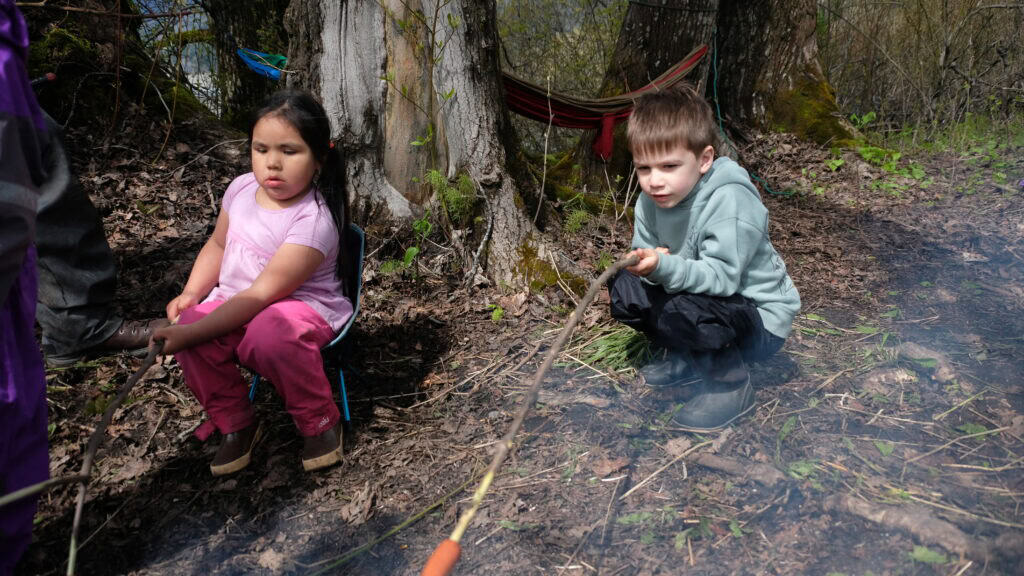
Allison Waid’s husband, Jake Waid, is an actor in Juneau and learned most of his Lingít while performing at Perseverance Theater.
“His grandma, it was instilled in her to not use the language so that wasn’t passed down. She taught her children it was safer not to, so it’s important to me and to my husband that Henry (Ukoonik) helps to get that back.”
For three days, families filtered in and out of camp. Kids played on the sandbar of the Chilkat River while their parents took turns chopping the saak. The Haa Yoo X’atángi Kúdi teachers drummed and sang as the woodsy scent of campfire smoke and smelt wafted through the air.
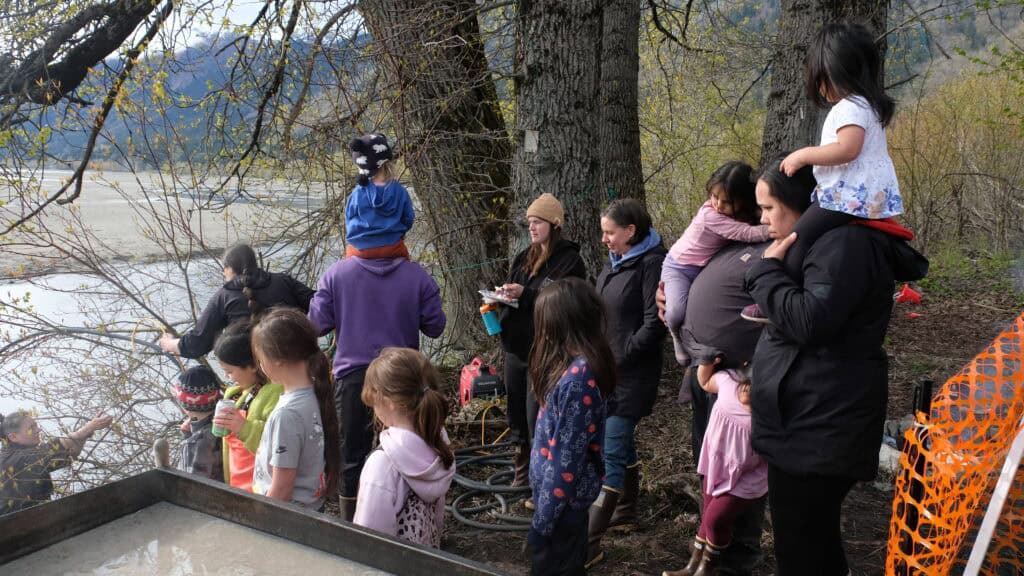
“It’s heartwarming. It’s hard to come up with the words to describe how it feels to have everybody out here,” Daaljíni said. “This is a process that not a lot of people know how to do anymore, so for them to observe this and be out on the land, it just brings so much joy to my heart.”
Making traditional foods is one way of connecting kids to their culture, creating lasting memories through shared meals and time out on the land together.
